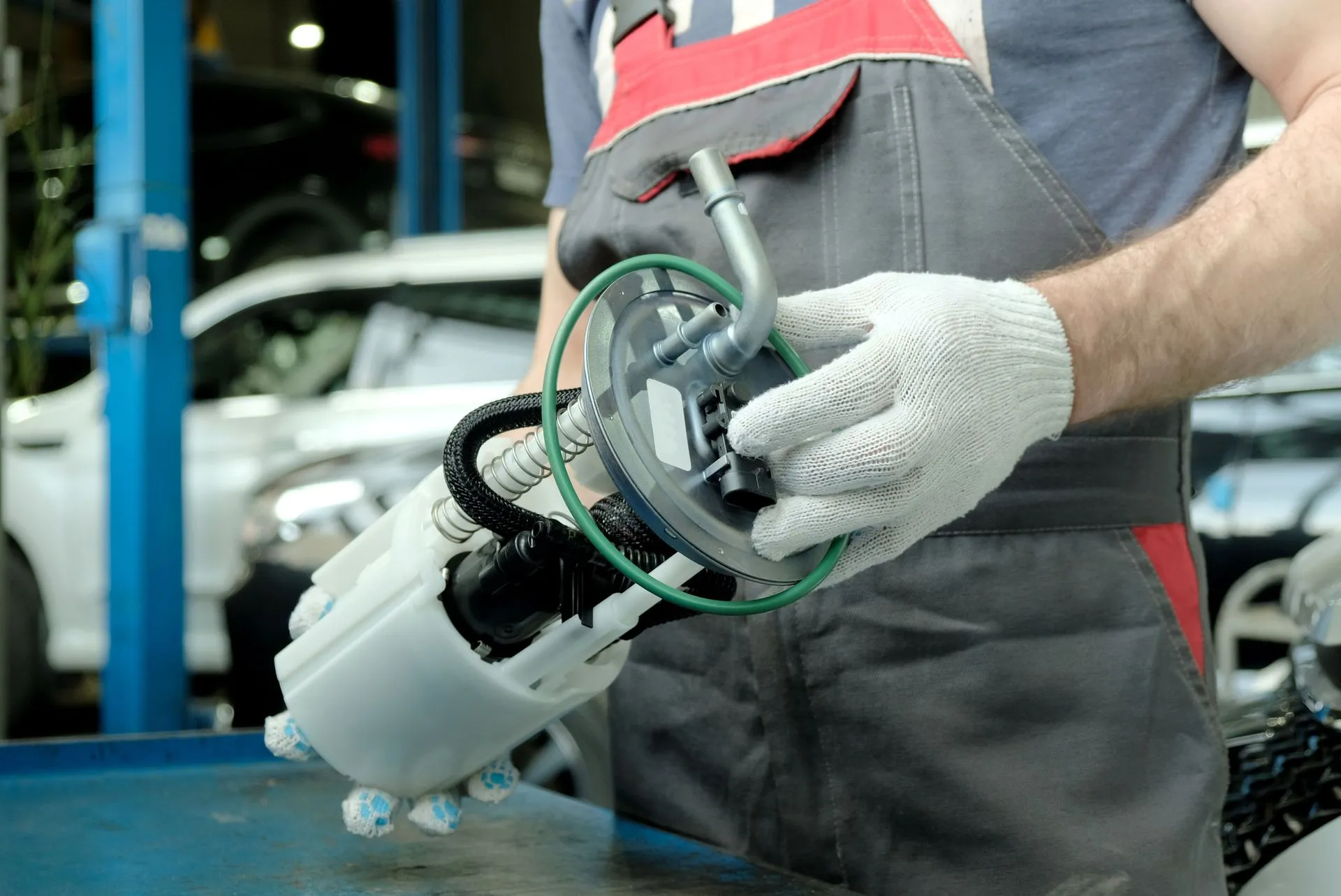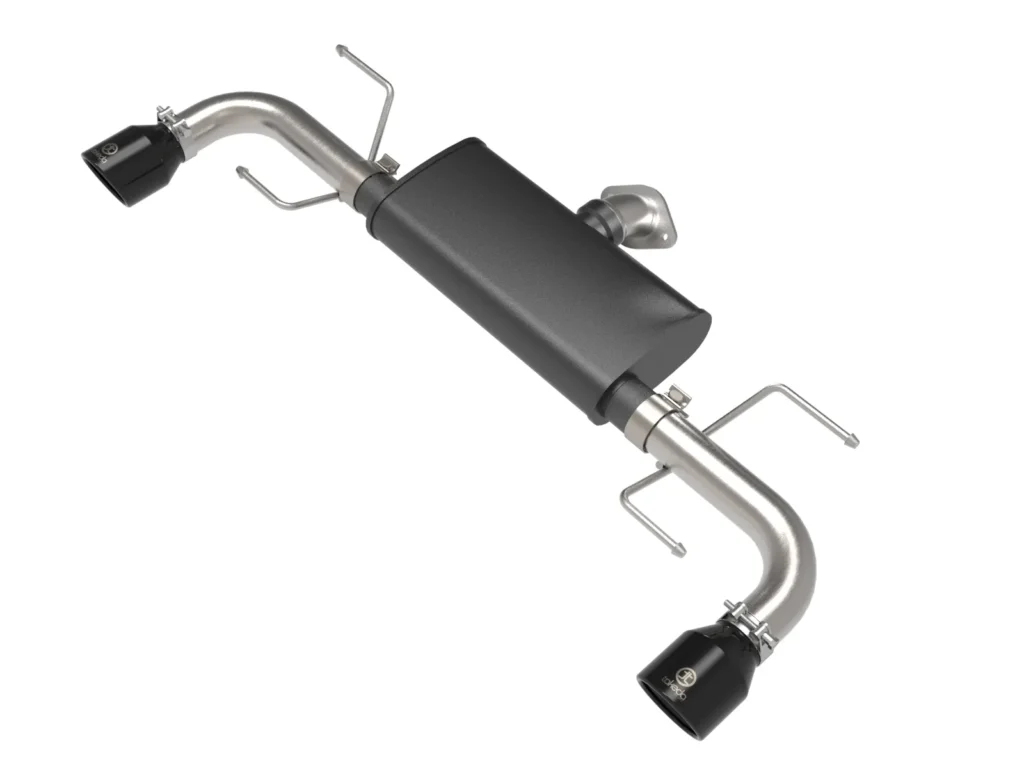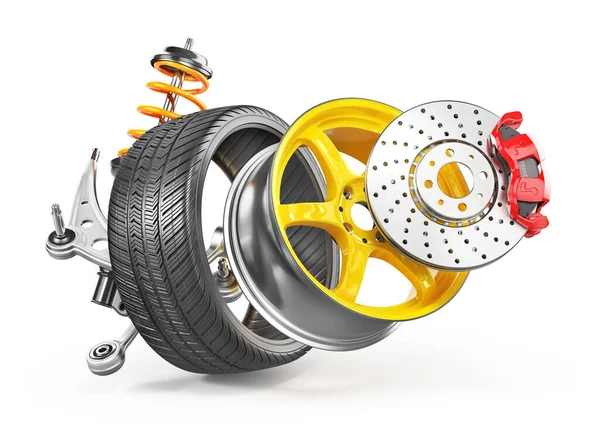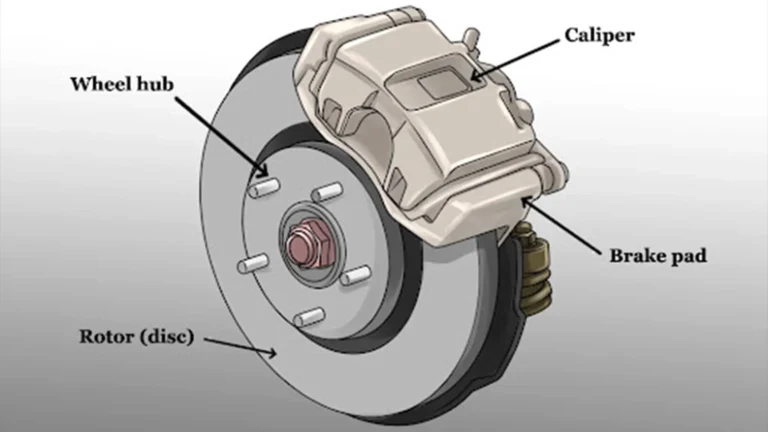Ford Focus Hesitate When Accelerating :
If your Ford Focus hesitates when accelerating, it could be caused by several issues. Common reasons include dirty air filters, worn spark plugs, fuel delivery problems, or a malfunctioning throttle body. Problems with the transmission or sensors can also lead to hesitation. It’s best to have a mechanic check your car to find and fix the issue. Regular maintenance can help prevent this problem.
If your Ford Focus hesitates when accelerating, it could be due to issues like a clogged air filter, faulty spark plugs, or problems with the fuel system. It’s also possible that the transmission or sensors might be malfunctioning. A mechanic can help diagnose and fix the problem.
We will talk about “Ford Focus Hesitate When Accelerating” in this article.
Table of Contents
Common Causes of Hesitation in Ford Focus

Dirty fuel injectors
Dirty fuel injectors can cause poor engine performance, rough idling, and decreased fuel efficiency. Over time, dirt and debris can clog the injectors, affecting fuel delivery to the engine. Cleaning or replacing the fuel injectors can fix these issues. Regular maintenance, such as using fuel additives, can help prevent build-up and keep the injectors working properly.
Also read: Restart Now or Key Is Needed Ford: A Comprehensive Guide .
Failing fuel pump
A failing fuel pump can cause engine stalling, trouble starting, or poor acceleration. It may struggle to send fuel from the tank to the engine. If the fuel pump isn’t working correctly, your car may not run smoothly or at all. Replacing the pump is necessary to restore proper fuel flow and engine performance.
Ignition system issues
Ignition system issues can cause problems like engine misfires, difficulty starting, or stalling. Common causes include faulty spark plugs, ignition coils, or a damaged distributor. These problems prevent the engine from starting or running smoothly. It’s important to have the ignition system checked and repaired to keep your car running well.
Damaged ignition coils
Damaged ignition coils can cause engine misfires, poor acceleration, and reduced fuel efficiency. Ignition coils are responsible for supplying the spark needed to ignite the fuel in the engine. If they are faulty, the engine may struggle to start or run smoothly. Replacing damaged coils is necessary to restore proper engine function and performance.
Air intake issues
Air intake issues can cause poor engine performance, reduced power, and increased fuel consumption. Problems like a clogged air filter or a damaged intake hose can restrict airflow to the engine. This makes it harder for the engine to run efficiently. Fixing these issues can improve engine performance and fuel efficiency.
Faulty mass air flow (MAF) sensor
A faulty mass air flow (MAF) sensor can cause engine problems like rough idling, poor acceleration, and reduced fuel efficiency. The MAF sensor measures the amount of air entering the engine to help control the fuel mixture. If it breaks down, the engine can have trouble starting. These problems can be resolved by replacing the MAF sensor.
Exhaust system problems
Exhaust system problems can cause loud noises, reduced engine power, or poor fuel efficiency. Common issues include a clogged catalytic converter, damaged muffler, or leaks in the exhaust pipes. These problems affect the engine’s performance and emissions. It’s important to repair the exhaust system to maintain the vehicle’s efficiency and reduce pollution.
Clogged catalytic converter
A clogged catalytic converter can reduce engine performance, cause poor acceleration, and increase fuel consumption. It happens when the converter gets blocked with soot or debris, preventing exhaust gases from flowing freely. This can also lead to higher emissions. Replacing or cleaning the catalytic converter can fix these issues.
Transmission problems
Transmission problems can cause difficulty in shifting gears, strange noises, or slipping while driving. Common issues include low transmission fluid, worn-out gears, or a faulty clutch. These problems can affect the car’s performance and safety. If you notice any issues, it’s important to have the transmission checked and repaired.
Low or old transmission fluid
Low or old transmission fluid can cause poor shifting, overheating, or damage to the transmission. The fluid helps lubricate and cool the transmission parts. When it’s low or worn out, the transmission may not work properly. Maintaining smooth shifting and avoiding damage can be achieved by routinely monitoring and replacing the fluid.
Diagnosing the Problem
Steps for troubleshooting
Steps for troubleshooting include identifying the problem, checking for error messages, and testing components or connections. Use tools to diagnose issues and follow user manuals if available. Fix small issues first, like loose wires or software updates, and seek professional help if the problem continues or needs expert repairs.
Tools you might need
Tools you might need for repairs or troubleshooting include screwdrivers, wrenches, pliers, a multimeter, diagnostic tools, and a flashlight. For software issues, you may need a computer and cables. Having the right tools helps identify problems and make fixes safely and effectively.
Fixes for Fuel System Issues

Cleaning or replacing fuel injectors
Cleaning or replacing fuel injectors is needed if they are dirty or damaged. Dirty injectors can reduce fuel flow, causing poor performance or higher fuel use. Cleaning restores flow, while replacement is necessary if they are worn or broken. Proper maintenance ensures smooth engine performance and better fuel efficiency.
Also read: Ford Fusion USB Port Not Working: Causes and Fixes
Replacing a failing fuel pump
Cleaning or replacing fuel injectors is needed if they are dirty or damaged. Dirty injectors can reduce fuel flow, causing poor performance or higher fuel use. Cleaning restores flow, while replacement is necessary if they are worn or broken. Proper maintenance ensures smooth engine performance and better fuel efficiency.
Fixes for Ignition System Issues
Replacing spark plugs
Replacing spark plugs is important for smooth engine performance. Old or worn-out spark plugs can cause misfires, poor fuel efficiency, and difficulty starting the engine. To replace them, remove the old plugs and install new ones. This helps the engine run better, saving fuel and preventing damage.
Checking and replacing ignition coils
Checking and replacing ignition coils is important for engine performance. Faulty coils can cause misfires, rough idling, or poor acceleration. To replace them, remove the old coils and install new ones. This ensures proper spark and helps the engine run smoothly.
Fixes for Air Intake Problems
Replacing the air filter
Replacing the air filter is essential for engine health. Performance and fuel economy are impacted by reduced airflow caused by a blocked filter.. To replace it, remove the old filter and install a new one. This increases overall efficiency and keeps the engine clean.
Cleaning or replacing the MAF sensor
Cleaning or replacing the MAF (Mass Air Flow) sensor is important for engine performance. Engine stalling, harsh idling, and poor fuel economy can all be caused by a dirty or malfunctioning MAF sensor. To fix it, clean the sensor or replace it with a new one to restore proper airflow and performance.
Fixes for Exhaust System Problems

Unclogging the catalytic converter
Unclogging the catalytic converter can improve engine performance and reduce emissions. A clogged converter causes poor acceleration and increased fuel consumption. Cleaning or replacing it can restore proper exhaust flow. In some cases, a special cleaning solution can be used, but often replacement is necessary for a fully effective fix.
Replacing the oxygen sensor
Replacing the oxygen sensor helps your car run more efficiently. This sensor measures the amount of oxygen in the exhaust and sends data to the engine control unit. If it’s faulty, it can cause poor fuel economy, increased emissions, or engine performance issues. Replacing it can improve these problems.
Transmission Fixes
Changing transmission fluid
Changing transmission fluid is important for keeping your car’s transmission working smoothly. The fluid may get soiled and lose its efficacy over time.. Regularly changing it helps prevent shifting problems, reduces wear, and extends the life of the transmission. Always follow your car’s manual for the right fluid and schedule.
Addressing TCM issues
Addressing TCM (Transmission Control Module) issues involves fixing problems with the car’s transmission system. The TCM controls shifting and helps manage gear changes. If it malfunctions, you may experience shifting delays or rough driving. Diagnosing and repairing the TCM can restore smooth transmission performance and prevent further damage.
When to See a Mechanic

Signs that you need professional help
Signs that you need professional help include unusual noises, warning lights on your dashboard, or poor performance in your car. If your vehicle shakes, makes strange sounds, or if the engine feels rough, it’s best to seek expert help. Addressing issues early can prevent bigger, more expensive problems later.
Also read: Ford Order Tracking Not Working : Ultimate Guide 2024 !
Cost considerations
Cost considerations refer to the expenses involved in car repairs or maintenance. Prices can vary based on the type of service, parts needed, and labor time Before beginning any work, it is crucial to obtain an estimate. Comparing prices and checking for warranties can help you make a more informed decision.
Conclusion
In conclusion, if your Ford Focus hesitates when accelerating, it could be due to various issues like fuel system problems, ignition issues, or transmission concerns. Regular maintenance and addressing problems early can help keep your car running smoothly. Always consult a mechanic if you notice unusual behavior, as early repairs can save you time and money in the long run.
FAQs
Why does my Ford Focus hesitate when accelerating?
Your Ford Focus may hesitate when accelerating due to issues like a dirty air filter, faulty spark plugs, fuel delivery problems, or a malfunctioning throttle body. A mechanic can help fix the issue.
How can I fix fuel system problems in my Ford Focus?
To fix fuel system problems in your Ford Focus, clean or replace dirty fuel injectors, replace a failing fuel pump, and ensure the fuel filter is clean. Regular maintenance helps prevent future issues.
What are the signs of transmission problems in my Ford Focus?
Signs of transmission problems in your Ford Focus include difficulty shifting gears, strange noises, slipping while driving, or rough acceleration. Low fluid levels or issues with the transmission control module may also be the cause.
When should I take my Ford Focus to a mechanic?
Take your Ford Focus to a mechanic if you notice warning lights, strange noises, poor performance, hesitation while accelerating, or trouble starting. Early repairs can prevent more serious and expensive issues later.







One Comment